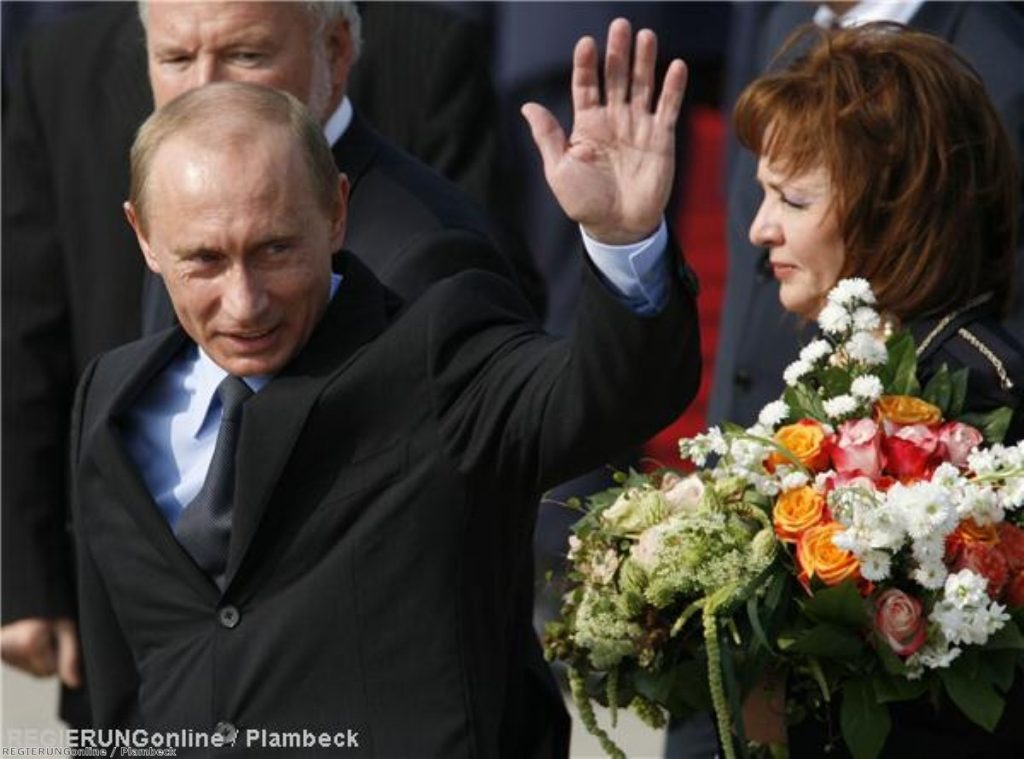Parties united on tough Russia stance
Britain’s main political parties are lining up in their opposition to Russia’s military actions in Georgia.
Russian tanks have been sighted in the Georgian town of Gori, which lies outside the disputed province of South Ossetia, continuing Moscow’s confrontational policy against the Georgian government.
Foreign secretary David Miliband told BBC News after a meeting of European Union foreign ministers in Brussels on Wednesday that the EU would want to send a clear message to Russia.
“I think it’s very, very important that the message goes out that the decades when Europe was torn apart by the use of force are put behind us and it’s unacceptable for the difficult issues on Russia’s borders to be settled by force,” he said.


“And given that we’ve got in the European Union now Baltic states and others with recent, relatively recent experience in Central and Eastern Europe I think it’s important we stand with them.”
The Liberal Democrats have called for Europe to stand together against “Russian aggression”.
Foreign affairs spokesman Edward Davey said the EU meeting, which opened the doors to a possible deployment of European peace monitors in the region, showed Europe “standing united against Russian aggression”.
“Strong European cooperation must be the way forward,” Mr Davey continued.
“We now need much firmer British leadership in response to this conflict, to back up the efforts of president [Nicolas] Sarkozy.”
The Conservatives continued their call for Russian forces to cease military actions in Georgia.
Shadow foreign minister Mark Francois said: “We are deeply concerned by increasing reports that Russian forces are not abiding by the ceasefire and are moving into new areas of Georgia.
“It is essential that all Russian forces should withdraw from territory outside of Abkhazia and South Ossetia – as President Medvedev gave a firm undertaking they would do – so that tensions can be reduced and negotiations can have a chance to proceed.”
US president George Bush stood outside the White House yesterday afternoon to make a strong statement against Russia military actions, explicitly putting the full weight of America’s diplomatic strength behind the Georgians.
Mr Bush said he supported the EU efforts to broker a peace deal and expressed his “solidarity with the Georgian people”.
He confirmed that he would be sending US secretary of state Condoleezza Rice first to France to talk with Mr Sarkozy, before heading to Tbilisi.
Mr Bush said Ms Rice would aim to “rally the free world in support of a free Georgia”.
During his stern address, Mr Bush urged Russia to allow humanitarian and medical aid to enter into the troubled region and said he expected Russian troops to now withdraw.
The US president also said Moscow’s actions were placing relations with the EU and Washington at risk.
Georgian officials claim that Russian tanks have entered the city of Gori, violating a truce agreement brokered by French president Nicolas Sarkozy.
Earlier today, it was announced that Mr Sarkozy had helped Russia and Georgia agree to outline a plan to end the current crisis in South Ossetia.
Russia even announced that its military activity in South Ossetia was finished and claimed troops had begun withdrawing.
This afternoon, however, Georgia’s security council chief Alexander Lomaia said that 50 Russian tanks had moved into Gori, a city located 15 miles from the border with South Ossetia.
Reports cite eyewitnesses leaving the city as saying widespread looting is currently underway and residents are being held up at gunpoint.
Georgian interior ministry spokesman Zurab Gvenetadze said that Russian forces had also seized a military base on the outskirts of Gori.
In response, the Russian military claims to have shot down two Georgian spy drones above South Ossetia.
US president George Bush said today that Russia must cease all military action immediately and honour its commitment to a ceasefire.
Speaking outside the White House, Mr Bush said the US was concerned about the reports of Russian troops taking up positions outside Gori.
Fierce clashes broke out in South Ossetia last week after Georgia launched a surprise assault into the breakaway region.
In response, Moscow sent in hundreds of tanks and carried out a series of bombing raids on the region.
Both sides have traded insults over the fighting with Mr Saakashvili describing Russia’s actions as “cold-blooded murder”, while Russian president Dmitry Medvedev accused Georgia of ethnic cleansing.
Mr Sarkozy visited both leaders yesterday in an attempt to bring an end to the conflict.









